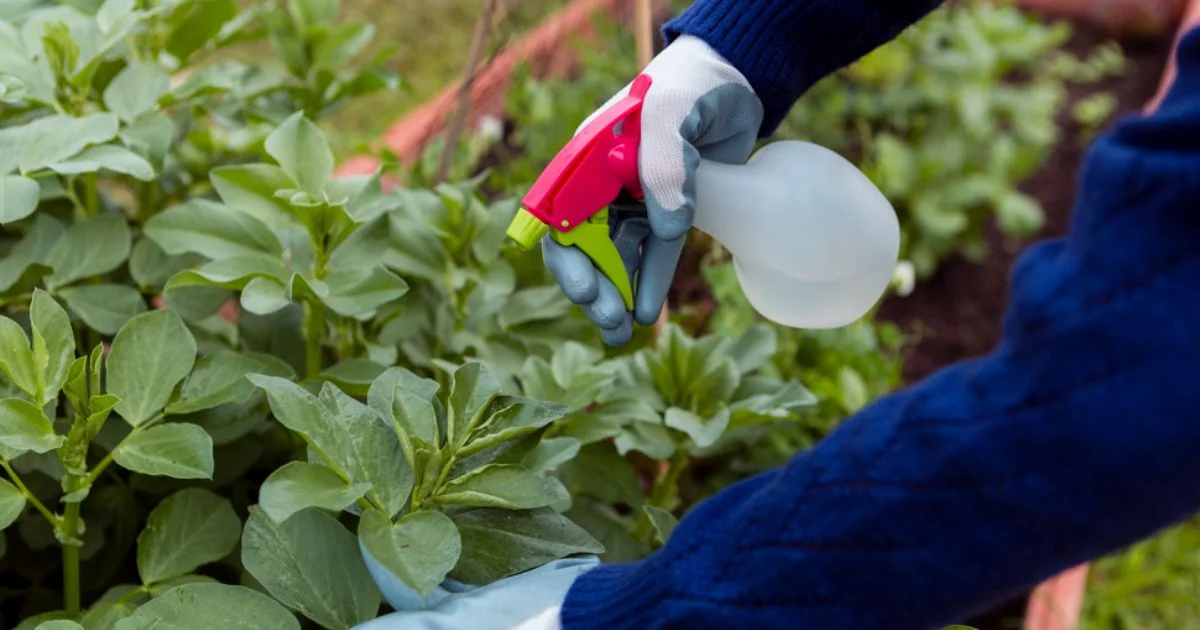
Jody’s Lawn Care has been around for more than 25 years, starting as a simple, one-man operation. Today, we’ve been expanding our business across communities, staying up-to-date with the latest lawn care methods and trends that emerge each year.
One topic that has come up consistently is the appropriate use of pesticides and sustainability efforts. While many pesticide compounds contain chemical ingredients that may be harmful, they are being formulated to cause less environmental harm. As such, there are still bylaws in place that limit and even prohibit their use.
Understanding the local bylaws is incredibly important because failure to comply could cause more than a potential headache for you. For homeowners, the last thing you want is to find out your lawn care efforts are being followed by possible repercussions due to the local bylaws surrounding pesticides.
In this blog post, we’ll be exploring lawn care in Cambridge, Ontario, and what the pesticide bylaw means for you and your grass. We’ll also cover additional rules and regulations relevant to the province of Ontario.
What is the Cambridge Pesticide Bylaw?
Back in 2007, the city of Cambridge issued a bylaw that stated that unless your lawn has an insect infestation, fungus, bacterial organism, or virus, the use of pesticides during July and August is prohibited.
The bylaw came at a time when Waterloo region and area municipalities were working to reduce the use of pesticides and educate residents about how to care for their lawn naturally.
Cambridge's pesticide bylaw prohibits the use of pesticides, including weed and feed products, during July and August. Exceptions are allowed only if a land exterminator verifies that the lawn has an insect infestation, fungus, bacterial organism, or virus. Also, a 24-hour notification is required before any pesticide use can take place.
Cambridge also has a pesticide reduction program in effect, which includes a 200-metre pesticide-free zone close to playgrounds and public play areas, according to Cambridge.ca.
This is a part of a major effort by the province to eliminate the potential harm to the environment caused by unnecessary pesticide use. More on that later.
Additional Factors
Waterloo Region (which includes Cambridge) also enforces a cosmetic pesticide ban from July 1 to August 31 each year, which overlaps with Cambridge’s bylaw. This ban applies to all herbicides, including the product Fiesta, which is our primary weed eradicator, insecticides, and fungicides used for aesthetic lawn care purposes. Misuse of pesticides in lawn care in Cambridge could result in penalties for the homeowner.
Summary of What's Allowed / Prohibited in Cambridge
Time/Condition Cosmetic Pesticide Use Exception Allowed If…
July 1–Aug 31 ❌ Prohibited ✅ Only for verified infestations (fungus, bacteria, insects) with evidence horttrades.com
Rest of the Year ❌ Prohibited (Provincial Ban) ✅ Same infestation-based exceptions
Municipal Restrictions 200 m buffer around playgrounds ✅ Applies year-round
Exploring Pesticide Use Across Ontario
Once you start taking a look province-wide, you won't be surprised to see that the provincial government regulates the sale, use, transportation, storage, and disposal of pesticides in Ontario. The Ontario Pesticides Act and Ontario Regulation 63/09 detail the province's guidelines in terms of regulation when it comes to pesticides to protect human health as well as the natural environment.
What Counts as a Pesticide in Ontario?
All pesticides in the country are classified at the federal level before being adopted in the province. Here is a general breakdown of said pesticides according to the government of Ontario:
Manufacturing Class A: This refers to manufacturing pest control products.
Restricted Class B: This refers to pesticides that could pose environmental health risks, meaning there are additional label requirements and usage restrictions.
Commercial Class C: This refers to pesticides that can only be used by people with appropriate training (i.e., certified farmers and licensed exterminators).
Domestic Class D: This refers to pesticides that are available for public use in and around homes.
N/A Class E: This is specific to Ontario, which refers to corn and soybean seeds treated with neonicotinoids (clothianidin, imidacloprid, thiamethoxam).
According to the province-wide cosmetic pesticide ban, the use of cosmetic pesticides is prohibited to reduce any unnecessary risks to the community and the environment at large. Only pesticides that match the province's low-risk criteria are considered usable, meaning they must be listed on Ontario's "Allowable List."
The Allowable List is available online for digital download. If you have any further questions on the appropriate use of pesticides, reach out to your neighbourhood lawn care provider and your municipal representatives.
How These Regulations Affect Homeowners
Simply put, these regulations affect homeowners because… well, you need to make sure you’re using approved products at the right time. For most, this means consulting with a local lawn care professional on the appropriate use of pesticides for your lawn.
Before choosing to use pesticides on your lawn, ask yourself a few questions first:
Is the product recommended to you by a professional that you trust?
Is the product on the “Allowable List” for cosmetic use?
Does the purpose of your pesticide use for cosmetic use or to control pests, viruses, bacteria, etc?
Have you thoroughly explored your municipality’s website or spoken to a local representative?
Are there gentle/approved pesticides you can choose from instead?
Pesticides: The Reasons for Strict Regulation
Ontario is very strict when it comes to permitting the use of pesticides, especially when it comes to cosmetic uses. The reason the province is so strict on the subject is that unapproved pesticides could have a significant impact on human and environmental health.
The government is trying to limit the potential for humans to encounter harmful chemicals in the air, water, and environment, especially when it comes to children.
Children are far more likely to accidentally come into contact with pesticides sprayed on grass, posing a more serious risk to their health. Children are more susceptible to the negative impacts of pesticides.
Pesticides that don't fall within the province's guidelines could have a serious impact on the local environment, harming untargeted ecosystems, water quality, and soil health. Here are a few examples of that environmental impact:
Damage to non-target species, such as wildlife and aquatic life.
Contamination of water resources, such as surface water runoff and groundwater pollution.
Soil health degradation includes the loss of microbial diversity and persistence.
Bioaccumulation/food chain disruption refers to when toxic pesticides accumulate in the tissue of animals before moving up the food chain to predator animals. These pesticides also reduce insect populations, effectively eliminating food sources for other animals.
And more.
This is why pesticides are so carefully regulated and why compliance is important for everyone in the province. This is why you must ensure you utilize a trusted local lawn care professional who will provide information on the products they are using willingly and readily (including product labels and WHMIS data) before making the decision to use pesticides on your grass.

Jody’s Lawn Care: Fiesta Weed Killer – Approved!
If you need help controlling a variety of broadleaf weeds, don’t worry. Jody’s Lawn Care uses Fiesta Weed Killer: A completely safe and approved weed control product that is designed to keep your lawn healthy.
The Ontario Regulation 63/09 does in fact prohibit the use of the majority of pesticides (such as 2,4-D, glyphosate) on lawns and gardens, allowing for only “low-risk” natural pesticides for turf use. Fiesta, in particular, has been approved by Health Canada’s Pest Management Regulatory Agency and was initially approved in April 2010.
This means our products have been deemed safe for use on Cambridge lawns and abide by municipal and provincial bylaws/regulations. You can trust that by choosing Jody’s Lawn Care, you’re receiving not only the best service, but the most tried and trusted products.
Don’t Take the Risk: Trust the Experts
Lawn care in Cambridge is no joke. But don’t you want the best-looking lawn on the block without worrying about the potential risks? Are you worried about lawn treatments harming your kids, pets, or community?
Choose Jody’s Lawn Care. This Canadian-owned and operated business is run by people who know your neighbours and know the landscape.
Together, we come up with a unique plan for your grass and do all of the heavy lifting on your behalf. You don’t need to stress about any bylaws or regulations; with more than 25 years of experience, Jody’s Lawn Care is well-versed in the appropriate use of lawn care products and procedures. Meaning you and yours are in good hands and well-protected.
Our Fiesta Weed Killer is designed to target broadleaf weeds (especially Dandelions!), leaving behind a lush and clean lawn you can enjoy safely. Don’t hesitate, contact Jody’s Lawn Care today and get your yard ready for the summer!



 Katie
Goliboski
Katie
Goliboski